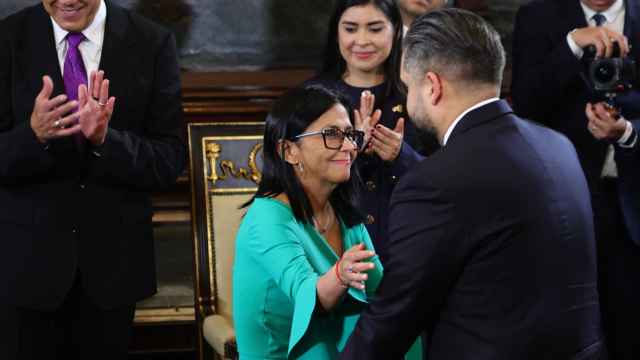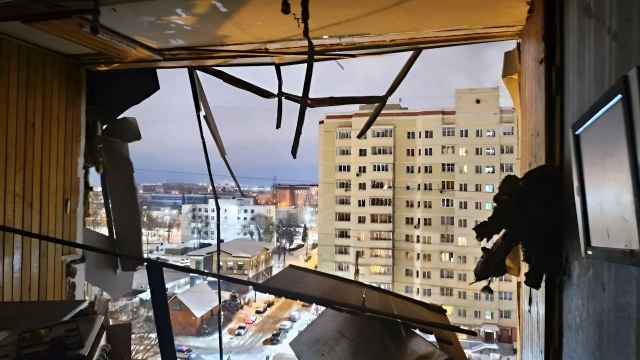The government's 2014 budget, which Prime Minister Dmitry Medvedev has described as "very harsh," was submitted to the State Duma on Monday.
According to the document, which also includes projections for 2015 and 2016, the country is set to record a budget deficit of 391 billion rubles ($12 billion) in 2014, rising to 817 billion rubles the following year.
Financial planning in recent months has taken place against a backdrop of slowing economic growth, which the government expects to fall to 1.8 percent this year, its lowest level since the 2009 financial crisis.
Medvedev warned that budget cuts between 2014 and 2016 could amount to 5 percent in some areas and described the upcoming budget as "very harsh" when it was approved by the Cabinet earlier this month. President Vladimir Putin has said budget expenditure would have to be lowered to account for reduced growth forecasts, but that a sequester — a series of automatic budget cuts — was not on the table.
Finance Minister Anton Siluanov told Putin during a government meeting Monday that more than 2.1 trillion rubles had been earmarked to honor a series of social spending commitments, the so-called May decrees, made by Putin immediately after his 2012 inauguration for a third presidential term, Prime reported.
Government expenditure is set to rise from 14 trillion rubles in 2014 to 15.4 trillion in 2015, and 16.4 trillion rubles in 2016. The budget is based upon an average oil price of $93 a barrel in 2014 and $95 a barrel in 2015 and 2016, as well as average annual inflation of 5 percent in 2014 and 4.5 percent in 2015 and 2016.
The budget is likely to receive its first reading by deputies Oct. 25, Makarov said, Prime reported. The Duma is legally obliged to consider the budget within 60 days of its submission.
A Message from The Moscow Times:
Dear readers,
We are facing unprecedented challenges. Russia's Prosecutor General's Office has designated The Moscow Times as an "undesirable" organization, criminalizing our work and putting our staff at risk of prosecution. This follows our earlier unjust labeling as a "foreign agent."
These actions are direct attempts to silence independent journalism in Russia. The authorities claim our work "discredits the decisions of the Russian leadership." We see things differently: we strive to provide accurate, unbiased reporting on Russia.
We, the journalists of The Moscow Times, refuse to be silenced. But to continue our work, we need your help.
Your support, no matter how small, makes a world of difference. If you can, please support us monthly starting from just $2. It's quick to set up, and every contribution makes a significant impact.
By supporting The Moscow Times, you're defending open, independent journalism in the face of repression. Thank you for standing with us.
Remind me later.





